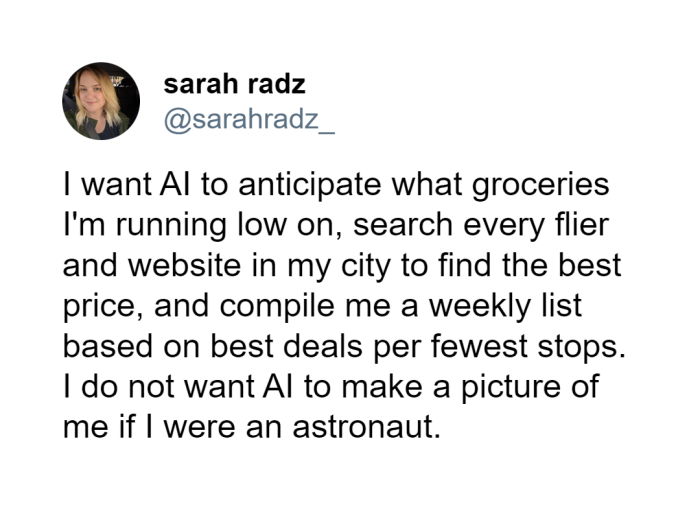Good Monday Morning
It’s August 21st. Friday is the deadline to add your name to the Facebook privacy class action settlement. You qualify if you were a U.S. Facebook user between 2007 and 2022. Official website.
Today’s Spotlight is 1,175 words — about 4 1/2 minutes to read.
3 Stories to Know
1. Revenge Porn Case: A Houston jury awarded over $1 billion in a revenge porn case, possibly setting a legal precedent. The decision underscores the issue’s potential damage. A 2017 study by Data & Society Research Institute found that 1 in 25 Americans has experienced nonconsensual image sharing.
2.Musk Throttles web: Twitter, now known as X, is slowing traffic to sites including the New York Times, Facebook, and Instagram, forcing users on X to wait an additional five seconds after clicking a link. The action targets companies that have previously drawn owner Elon Musk’s ire. Some throttling has stopped, but there are lingering concerns about Musk’s influence over user access to information.
3. Time & Weather: Google’s Contacts app now displays weather and time info for your contacts’ locations. The new feature will help communications across time zones and can be a good ice breaker too.
Spotlight on What to Know About AI

Recap of Part 1
Last week, we unraveled the basics of Artificial Intelligence (AI), the groundbreaking technology reshaping our lives. From voice assistants to personalized recommendations, AI is becoming an integral part of everyday experiences. But there’s more to the story!
Mystery Behind AI Outputs
AI might seem magical, but behind the scenes, it’s a complex data science.
Think of AI as a black box where data goes in and intelligent decisions come out. What happens inside? Algorithms like decision trees sort data into categories, while neural networks, akin to a web of interconnected brain cells, process information through layers, refining it into smart actions. Human experts often check these processes to ensure fairness and accuracy.
Then there’s generative AI like ChatGPT or Google Bard, a sophisticated output that functions like an advanced autocomplete system. Curious about how machines learn? Here’s an explanation made simple.
Ethics & Controversy
Ethical controversies surround AI development and use. The litany includes bias, accountability, and ownership of the output.
Popular video conferencing platform Zoom faced significant backlash this month when it revealed plans to train AI algorithms using customer calls. The company publicly canceled those plans days later amid horrific brand damage. The incident has led to a larger conversation about consent and transparency in AI development.
Taking a bold step, the New York Times blocked AI training on its content, signifying a turning point in how organizations address AI interactions. A week later, Microsoft joined them, a remarkable move for the company that has invested $10 billion in OpenAI and ChatGPT. Their moves reflects growing concerns about how AI algorithms might misinterpret or misuse journalistic or technical content, and it has spurred other media outlets to evaluate their own policies.
Fair compensation for source material, one of the internet’s biggest bugaboos, is at the heart of many disputes.
Google’s approach to AI has led to several debates about ethics and fair practice. One significant controversy is their use of online content for AI training, sparking concerns about copyrights. By leveraging publicly available information without explicit permission, questions arise about intellectual property rights and fair use.
The 2020 termination of renowned AI ethicist Timnit Gebru from Google ignited a firestorm of criticism. Gebru was a prominent advocate for diversity in technology and raised critical questions about bias in AI, specifically the large language models now at the heart of Google Bard.
Her dismissal exposed underlying tensions within the tech community about freedom of speech, research integrity, and the responsible development of AI. Together, these controversies represent the complex intersection between technology, law, and ethics, with potential wide-reaching ramifications.
Today
AI is no longer a futuristic concept — it’s here today, impacting how we live, work, and interact. The journey into AI’s world uncovers innovations, challenges, and ethical dilemmas. As AI continues to evolve, so does our understanding of this fascinating technology.
Our Practical AI section below covers each week’s highlights and news in this explosive new field.
Practical AI
Quotable: “Right now, with 1,000 hours of therapy time, we can treat somewhere between 80 and 90 clients. Can you treat 200, 300, even 400 clients with the same amount of therapy hours?”
— Stephen Freer, Chief Clinical Officer of Ieso that oversees 650 therapists who may use AI to help with case documentation.
Google, Universal Negotiate: Google is in talks with Universal Music Group to negotiate a licensing agreement for using Universal’s music and videos to train Google’s AI models. The negotiations mark a new approach in machine learning, using media to enhance understanding of music and visual content. This partnership could set a precedent for collaboration between tech and entertainment industries in AI development. Artists, especially striking Hollywood writers and actors, are keenly aware of this issue.
Tool of the Week: This free infographic is one of the best I’ve seen to help guide people on using ChatGPT, Bard, or other AI chatbots.



Did That Really Happen — Maui Misinformation
Dangerous misinformation circulated falsely claiming that Maui residents accepting FEMA assistance could lose their homes or property to the federal government, a claim The Associated Press debunked.
Conspiracy theorists also falsely claimed that former President Barack Obama’s home was untouched by fires in Hawaii, stirring up conservative outrage, until others pointed out that Obama’s Hawaii home is on a different island.
Following Up — Another Abuse of Facial Recognition
We’ve told you repeatedly about law enforcement agencies misusing facial recognition. There’s news about Porcha Woodruff, a pregnant woman from Detroit, who was wrongfully arrested for robbery and carjacking after an automated facial recognition search. Despite being visibly pregnant, she was handcuffed, held for 11 hours, and had her iPhone seized as evidence. Woodruff’s is the sixth instance where a Black person has been falsely accused of a crime by police misusing facial recognition.
Protip — Reverse Image Search
Learn how to perform a reverse image search with ease using this step-by-step guide that can help you discover how to find the original source of an image, debunk fake photos, and identify objects, people, or locations in pictures using Google, Bing, or TinEye.
Screening Room — Country Crock’s Legendary Campaigns Loves Moms
Science Fiction World — New Ocean Floor Ecosystem
Scientists using robots have uncovered an ecosystem thriving beneath the ocean floor. This previously unseen world, located in Earth’s crust, hosts diverse microbes that play a crucial role in the planet’s cycle.
Coffee Break — Steve Ballmer’s Hysterical 1986 Ad Parody
Steve Ballmer, the world’s 10th richest person, was about 30 years old and rallying the Microsoft troops around their new operating system called Windows, when he made this amazing commercial parody.
Sign of the Times












